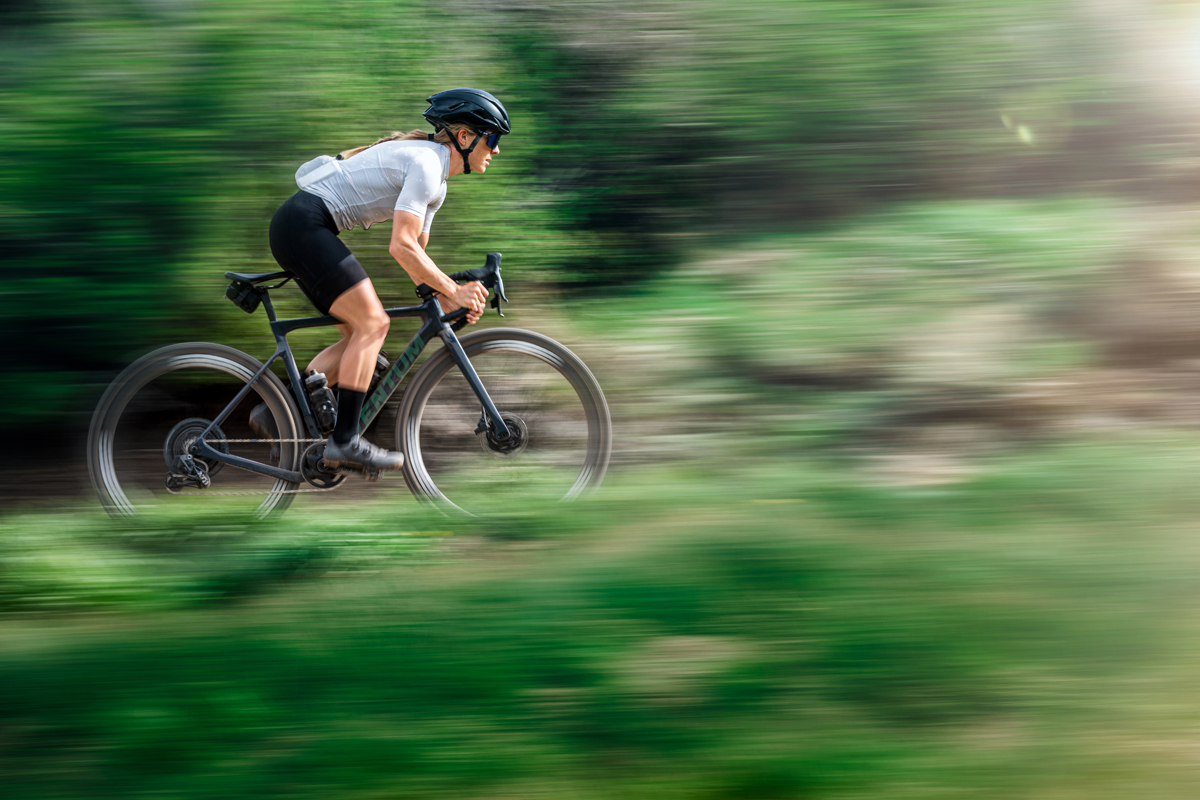By Anthony J. Nocella II, Ph.D. —
Anthony Nocella: Could you tell me how you got into cycling and if any women supported you in the beginning?
Lindsey Stevenson: I grew up mountain biking, but my focus in high school was on running cross-country and track. I started getting overuse injuries when I was 16, and my Mom bought me my first road bike from one of her friends. It was an old-school Bianchi, and with some encouragement to ride from both of my parents, I quickly fell in love with the bike.

AN: Tell me a bit about your racing history, such as your podiums and other accomplishments, including the teams you have ridden and raced for.
LS: I dabbled in a few races as part of the Aggies Club team at Utah State. I had no idea what I was doing, and I got dropped in just about every race I entered. I made some good friends, picked up a few tips and tricks along the way, and kept coming back for more. For a couple years I entered some of the well-known bike events like Leadville 100, Crusher in the Tushar, and LOTOJA, but I was never really racing. It was only after I had been part of the winning team in the co-ed division at Rockwell Relay (now Kokopelli Relay) that I was approached by a fellow rider and asked why I didn’t race, because the women’s field was desperate for more participants.
I joined the local team Endurance 360, and raced as much as I could in 2017 and 2018. I won a handful of local races, upgraded to a Cat 3, then started making my way into bigger races as part of the Zone Five Racing Team. I have won LOTOJA in the Women’s P/1/2 field 3 times, my age group division twice at Crusher and the overall GC at Baker City Cycling Classic in 2018, along with most of the local races in Utah that year.
I took a year off of racing in 2019 to have a baby, and have since returned to racing with a focus on gravel as part of the ABUS Pro Gravel Team. This year I finished Unbound Gravel, though I hope to go back and get a better result next year. I took 4th in the Pro field at Crusher, and finished 3rd at Gravel Worlds.
AN: As a competitive cyclist can you tell me how your personal life or family life is shaped to support your racing and training?
LS: It is certainly a balancing act to make sure that I’m not neglecting my family because of cycling. I have a two-year-old son who I spend most of my days with, and I work as a massage therapist a few nights each week. My training happens in the early hours of the mornings or during his nap in the afternoons. My husband and I trade off hanging out with our little one on the weekends so we can both get our longer rides in. With so many of the bigger races being out of town I get a lot of help from my parents and my in-laws. They have been really great about watching my son so I can make it to all of the races.
AN: When training and racing with other women what are some key differences that you see as the best part of the women’s cycling culture?
LS: The number of women on bikes versus the number of men on bikes is significantly smaller, but we’re growing and I love it. I love the encouragement and the hype that I feel from riding and racing with other women. It is incredible to see it all come together for women who are new to the sport, and it is beautiful and humbling to race in such strong fields of women in the gravel races.
AN: In your opinion, how can the industry, race promoters, and bicycle shops be more inclusive to women and girls, besides hiring them as is much needed?
LS: There has been a big push for equity in women’s cycling in the past couple of years, and there are so many incredible women in the industry now to keep it moving in the right direction. I have found that women who are new to the sport are often intimidated to race, and don’t see the point in it if the race registration is extremely high. Discounts on race registration for women and chances to win a free entry to a big event can certainly serve as incentives to get more women racing!
AN: How can the general community support upcoming girls who want to be elite racing cyclists like you, and what do you have to say to young girls?
LS: Getting girls on bikes and helping them fall in love with the sport is where it starts. They need coaches, and some type of club or clinic to get them out riding and learning to race. Whether they are coached individually or as part of a team, having someone to ride with is so helpful when they’re first starting out. Cycling comes with highs and lows, but keep riding, keep training, and remember to keep it fun. Get it girls!
Anthony J. Nocella II, Ph.D. is a full-time professor at Salt Lake Community College, author of numerous books, trail runner, triathlete, competitive cyclist, and in his free time works at Hangar 15 Bicycles Millcreek.


[…] An Interview with Gravel Racer Lindsey Stevenson […]
Comments are closed.